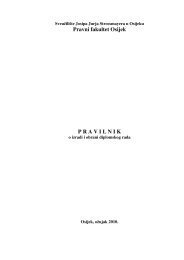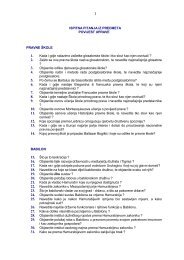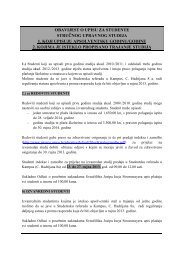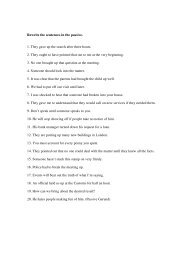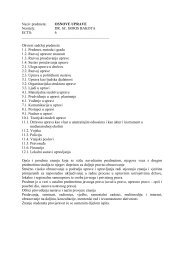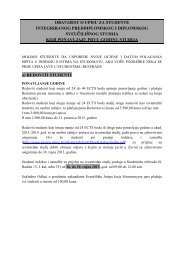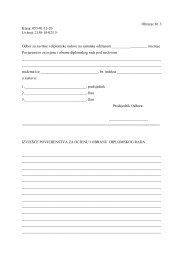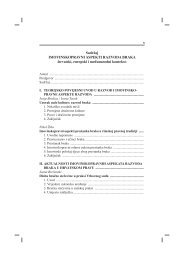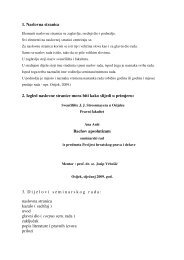ADVERBS
ADVERBS
ADVERBS
You also want an ePaper? Increase the reach of your titles
YUMPU automatically turns print PDFs into web optimized ePapers that Google loves.
- come before simple tenses of all other verbsThey constantly disobey the regulations.- in compound tenses follow the first auxiliary verbThis lawyer has scarcely ever lost a case.but in questions follow the auxiliary verb + subjectHave you ever been arrested?Adverbs of Degree (absolutely, barely, completely, enough, quite, entirely, thoroughly, …)- modify adjectives or other adverbsThis is quite right. / He behaved absolutely foolishly.- enough follows the adjective or adverb it modifiesThis answer was not good enough. / He didn’t answer fast enough.- some of the degree adverbs can also modify verbs (almost, hardly, enough, just, (a) little,much, nearly, quite, rather, really, scarcely)He nearly drowned.- just as a qualifier precedes the word(s) it refers toI had just enough money for one phone call.I just had enough money for one phone call.I had enough money for just one phone call.etc.Order of Adverbs (Adverb Phrases) of Manner, Place and Time in the Same Sentence- manner before place (usually)He sat proudly on the throne.BUT: away, back, down, forward, home, in, off, on, out, round and up are usually put infront of adverbials of mannerShe turned back angrily.- time follows manner and placeThe judge had a very busy day today.Or occupies the initial positionToday the judge had a very busy day.Sentence Adverbs (actually, apparently, certainly, clearly, obviously, probably, surely)- modify the whole sentence/clause and express the speakers opinion/attitudeShe is obviously intelligent. /They certainly deserved the sentence. / Apparently he was right.




